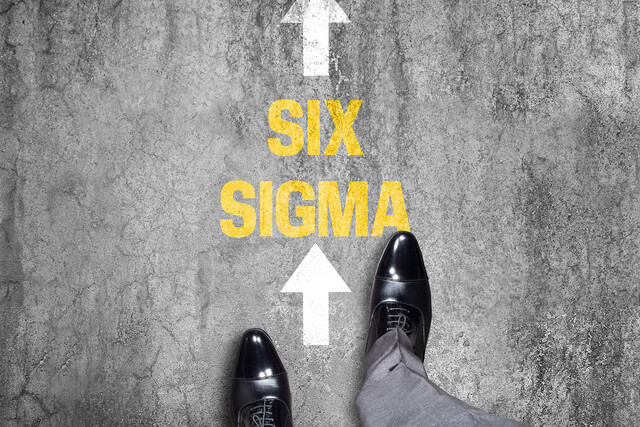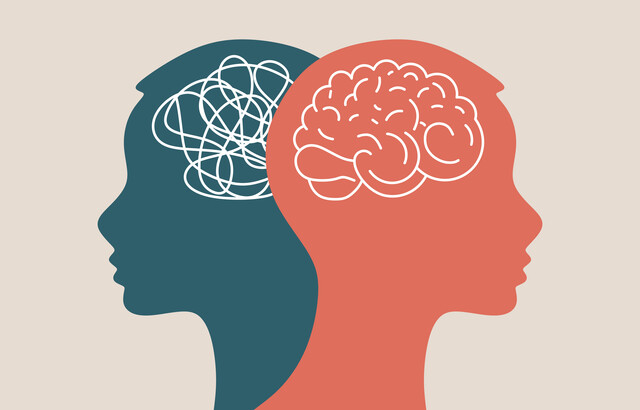Online Class: Sociology 101

no certificate
with CEU Certificate*
-
20Lessons
-
39Exams &
Assignments -
2,676Students
have taken this course -
15Hours
average time -
1.5CEUs
Course Description
Sociology 101: Unlocking the Sociological Imagination
Dive into the intriguing world of sociology, where we unpack society's intricate web of connections, conflicts, and constructs. Whether you're a budding sociologist or a curious mind looking to better understand the social intricacies around you, "Sociology 101" stands ready to offer you a robust and comprehensive guide to the subject.
Course Overview:
Deepen your knowledge with nineteen meticulously curated lessons, each designed to illuminate distinct facets of sociological thought. Drawing from both classical and contemporary perspectives, this course invites students to link age-old theories with current research. Beyond the theoretical, we will explore practical topics that shape our daily lives and inform societal structures. The goal? Cultivate a genuine sociological imagination—one that empowers you to critically analyze yourself, your immediate society, and the broader world.
Do These Questions Resonate?
- Ever pondered the true essence of 'culture'?
- Curious about the forces that shape our beliefs and behaviors?
- Contemplated the societal underpinnings of discrimination—be it based on age, gender, race, or ethnicity?
- Passionate about debates surrounding freedom of speech, environmental conservation, or the intersections of religion and modern life?
If even one of these inquiries sparks your interest, then this course promises a rich learning experience tailored for you.
Course Requirements:
Each lesson is sequential, ensuring a structured learning experience. A student must complete each lesson in full before proceeding to the subsequent lesson. With each lesson, students will encounter a review quiz and an assignment designed to reinforce learned concepts. A successful course completion requires a cumulative score of 70% or above.
Flexible Learning, Anytime, Anywhere:
One of the prime benefits of this course is its adaptability to your routine. With no stringent timings for lectures and multiple communication channels available, students can engage with the course material and the instructor at their convenience.
Join Us Today:
With 24/7 open enrollment, there's no need to delay your sociological journey. Register today, immerse yourself in the captivating world of sociology, and emerge with a sharpened understanding of the social structures that shape us.
Course Motivation
- Completely Online
- Self-Paced
- Printable Lessons
- Full HD Video

- 6 Months to Complete
- 24/7 Availability
- Start Anytime
- PC & Mac Compatible
- Android & iOS Friendly
- Accredited CEUs

Course Lessons
Lesson 1. Understanding Society: The Role of Sociology in Analyzing Social Structures
 Lesson 1 Video
Lesson 1 Video Review Practice Worksheet: Lesson-1-Activity-10607.pdf
Review Practice Worksheet: Lesson-1-Activity-10607.pdf Lesson discussions: Reasons for Taking this Course
Lesson discussions: Reasons for Taking this Course Complete Assignment: Introductions
Complete Assignment: Introductions Assessment: Lesson 1 Exam
Assessment: Lesson 1 Exam Assessment: Lesson 1 Review Exam
Assessment: Lesson 1 Review Exam
Lesson 2. An In-Depth Look at Society's Functional, Conflict, and Interactionist Views
 Lesson 2 Video
Lesson 2 Video Review Practice Worksheet: Lesson-2-Activity-10608.pdf
Review Practice Worksheet: Lesson-2-Activity-10608.pdf Assessment: Lesson 2 Exam
Assessment: Lesson 2 Exam Assessment: Lesson 2 Review Exam
Assessment: Lesson 2 Review Exam
Lesson 3. Crafting a Comprehensive Sociological Research Study
 Lesson 3 Video
Lesson 3 Video Review Practice Worksheet: Lesson-3-WordSearch-10609.pdf
Review Practice Worksheet: Lesson-3-WordSearch-10609.pdf Lesson discussions: Survey Participation
Lesson discussions: Survey Participation Assessment: Lesson 3 Exam
Assessment: Lesson 3 Exam
Lesson 4. Unraveling Culture: A Complex Tapestry of Norms and Values
 Lesson 4 Video
Lesson 4 Video Review Practice Worksheet: Lesson-4-HomeWork-10610.pdf
Review Practice Worksheet: Lesson-4-HomeWork-10610.pdf Assessment: Lesson 4 Exam
Assessment: Lesson 4 Exam Assessment: Lesson 4 Review Exam
Assessment: Lesson 4 Review Exam
Lesson 5. Socialization Throughout Life
 Lesson 5 Video
Lesson 5 Video Review Practice Worksheet: Lesson-5-HomeWork-10611.pdf
Review Practice Worksheet: Lesson-5-HomeWork-10611.pdf Assessment: Lesson 5 Exam
Assessment: Lesson 5 Exam Assessment: Lesson 5 Review Exam
Assessment: Lesson 5 Review Exam
Lesson 6. Understanding Social Interaction and Its Categories
 Lesson 6 Video
Lesson 6 Video Review Practice Worksheet: Lesson-6-WordSearch-10612.pdf
Review Practice Worksheet: Lesson-6-WordSearch-10612.pdf Assessment: Lesson 6 Exam
Assessment: Lesson 6 Exam Assessment: Lesson 6 Review Exam
Assessment: Lesson 6 Review Exam
Lesson 7. The Complexity of Human Groups: Types, Interactions, and Traits
 Lesson 7 Video
Lesson 7 Video Review Practice Worksheet: Lesson-7-WorkSheet-10613.pdf
Review Practice Worksheet: Lesson-7-WorkSheet-10613.pdf Lesson discussions: Group Affiliation
Lesson discussions: Group Affiliation Assessment: Lesson 7 Exam
Assessment: Lesson 7 Exam Assessment: Lesson 7 Review Exam
Assessment: Lesson 7 Review Exam
Lesson 8. Understanding Governance: From Autocracy to Democracy
 Lesson 8 Video
Lesson 8 Video Review Practice Worksheet: Lesson-8-WorkSheet-10614.pdf
Review Practice Worksheet: Lesson-8-WorkSheet-10614.pdf Assessment: Lesson 8 Exam
Assessment: Lesson 8 Exam Assessment: Lesson 8 Review Exam
Assessment: Lesson 8 Review Exam
Lesson 9. Cities in Flux: The Environmental and Social Ramifications of Urban Growth
 Lesson 9 Video
Lesson 9 Video Review Practice Worksheet: Lesson-9-WorkSheet-10615.pdf
Review Practice Worksheet: Lesson-9-WorkSheet-10615.pdf Assessment: Lesson 9 Exam
Assessment: Lesson 9 Exam Assessment: Lesson 9 Review Exam
Assessment: Lesson 9 Review Exam
Lesson 10. The Complexity of Crime and Social Conformity
 Lesson 10 Video
Lesson 10 Video Review Practice Worksheet: Lesson-10-WorkSheet-10616.pdf
Review Practice Worksheet: Lesson-10-WorkSheet-10616.pdf Lesson discussions: Writing Etiquette
Lesson discussions: Writing Etiquette Assessment: Lesson 10 Exam
Assessment: Lesson 10 Exam Assessment: Lesson 10 Review Exam
Assessment: Lesson 10 Review Exam
Lesson 11. Exploring Social Stratification: Understanding Class and Inequality in the United States
 Lesson 11 Video
Lesson 11 Video Review Practice Worksheet: Lesson-11-HomeWork-10617.pdf
Review Practice Worksheet: Lesson-11-HomeWork-10617.pdf Assessment: Lesson 11 Exam
Assessment: Lesson 11 Exam Assessment: Lesson 11 Review Exam
Assessment: Lesson 11 Review Exam
Lesson 12. The Struggles Against Inequality: Gender and Age
 Lesson 12 Video
Lesson 12 Video Review Practice Worksheet: Lesson-12-WorkSheet-10618.pdf
Review Practice Worksheet: Lesson-12-WorkSheet-10618.pdf Lesson discussions: Ageism?
Lesson discussions: Ageism? Assessment: Lesson 12 Exam
Assessment: Lesson 12 Exam Assessment: Lesson 12 Review Exam
Assessment: Lesson 12 Review Exam
Lesson 13. Deconstructing Racial Myths and Ethnic Realities
 Lesson 13 Video
Lesson 13 Video Review Practice Worksheet: Lesson-13-Activity-10619.pdf
Review Practice Worksheet: Lesson-13-Activity-10619.pdf Assessment: Lesson 13 Exam
Assessment: Lesson 13 Exam Assessment: Lesson 13 Review Exam
Assessment: Lesson 13 Review Exam
Lesson 14. Tradition vs Modernity in Marriage
 Lesson 14 Video
Lesson 14 Video Review Practice Worksheet: Lesson-14-Downloadable-10620.pdf
Review Practice Worksheet: Lesson-14-Downloadable-10620.pdf Assessment: Lesson 14 Exam
Assessment: Lesson 14 Exam Assessment: Lesson 14 Review Exam
Assessment: Lesson 14 Review Exam
Lesson 15. Globalization: Shaping New Work Ethics and Values
 Lesson 15 Video
Lesson 15 Video Review Practice Worksheet: Lesson-15-HomeWork-10621.pdf
Review Practice Worksheet: Lesson-15-HomeWork-10621.pdf Assessment: Lesson 15 Exam
Assessment: Lesson 15 Exam Assessment: Lesson 15 Review Exam
Assessment: Lesson 15 Review Exam
Lesson 16. Understanding Media: Power, Influence, and Responsibility
 Lesson 16 Video
Lesson 16 Video Review Practice Worksheet: Lesson-16-Activity-10622.pdf
Review Practice Worksheet: Lesson-16-Activity-10622.pdf Assessment: Lesson 16 Exam
Assessment: Lesson 16 Exam Assessment: Lesson 16 Review Exam
Assessment: Lesson 16 Review Exam
Lesson 17. Reconciling Faith and Education: Balancing Religious Beliefs in Public Schooling
 Lesson 17 Video
Lesson 17 Video Review Practice Worksheet: Lesson-17-Activity-10623.pdf
Review Practice Worksheet: Lesson-17-Activity-10623.pdf Assessment: Lesson 17 Exam
Assessment: Lesson 17 Exam Assessment: Lesson 17 Review Exam
Assessment: Lesson 17 Review Exam
Lesson 18. Navigating the Complexities of Environmental Health
 Lesson 18 Video
Lesson 18 Video Review Practice Worksheet: Lesson-18-Activity-10624.pdf
Review Practice Worksheet: Lesson-18-Activity-10624.pdf Lesson discussions: Do you feel protected?
Lesson discussions: Do you feel protected? Assessment: Lesson 18 Exam
Assessment: Lesson 18 Exam
Lesson 19. The Power of Unity: How Social Movements Shape Society
 Lesson 19 Video
Lesson 19 Video Review Practice Worksheet: Lesson-19-WordSearch-10625.pdf
Review Practice Worksheet: Lesson-19-WordSearch-10625.pdf Assessment: Lesson 19 Exam
Assessment: Lesson 19 Exam Assessment: Lesson 19 Review Exam
Assessment: Lesson 19 Review Exam
Lesson 20. Final Exploration in Social Structures and Systems
 Review Practice Worksheet: Lesson-20-WordSearch-10626.pdf
Review Practice Worksheet: Lesson-20-WordSearch-10626.pdf Lesson discussions: Course Completion Poll: Your Thoughts; Final Survey; Program Evaluation Follow-up Survey (End of Course); Course Comments
Lesson discussions: Course Completion Poll: Your Thoughts; Final Survey; Program Evaluation Follow-up Survey (End of Course); Course Comments Assessment: Final Exam
Assessment: Final Exam Assessment: Lesson 20 Review Exam
Assessment: Lesson 20 Review Exam
Learning Outcomes
- Define sociology as the study of human social behavior, including the origins, organization, and development of society.
- Identify key sociologists and their theories, such as Durkheim's Functionalism and Marx's Socialism, in shaping the field.
- Identify and compare the key characteristics and applications of functionalism, conflict, and interactionist perspectives to interpret social phenomena.
- Define and explain the concept of the 'sociological perspective' and differentiate its application from other social science disciplines.
- Design a valid and reliable survey ensuring questions align with study objectives and address respondent attitudes effectively.
- Define and compare the features of empirical and categorical research methods in sociological studies.
- Critically assess diverse sociological debates by evaluating arguments and identifying key themes for further exploration.
- Demonstrate an understanding of different theories on cultural definitions by articulating examples from each perspective in discussions.
- Define and differentiate between the three main theories of child development: psychoanalytic, behavioral, and cognitive theories.
- Identify the key debates in developmental psychology, specifically continuity vs. discontinuity and nature vs. nurture, and explain their significance in socialization.
- Define the different categories of social interactions and provide examples for each category.
- Demonstrate understanding of nonverbal communication and proxemics by analyzing interactions and identifying nonverbal cues that indicate underlying feelings or intentions.
- Identify and describe the characteristics that differentiate primary, secondary, and reference groups in a sociological context.
- Demonstrate mastery of lesson content at levels of 70% or higher.
Additional Course Information

- Document Your Lifelong Learning Achievements
- Earn an Official Certificate Documenting Course Hours and CEUs
- Verify Your Certificate with a Unique Serial Number Online
- View and Share Your Certificate Online or Download/Print as PDF
- Display Your Certificate on Your Resume and Promote Your Achievements Using Social Media

Choose Your Subscription Plan
No Certificate / No CEUs
This course only
| Includes certificate | X |
| Includes CEUs | X |
| Self-paced |

|
| Instructor support |

|
| Time to complete | 6 months |
| No. of courses | 1 course |
Certificate & CEUs
This course only
| Includes certificate |

|
| Includes CEUs |

|
| Self-paced |

|
| Instructor support |

|
| Time to complete | 6 months |
| No. of courses | 1 course |
Certificates & CEUs
Includes all 600+ courses
| Includes certificate |

|
| Includes CEUs |

|
| Self-paced |

|
| Instructor support |

|
| Time to complete | 12 Months |
| No. of courses | 600+ |
Certificates & CEUs
Includes all 600+ courses
| Includes certificate |

|
| Includes CEUs |

|
| Self-paced |

|
| Instructor support |

|
| Time to complete | 24 Months |
| No. of courses | 600+ |
Student Testimonials
- "I enjoyed my instructor. She provided very useful and complementary feedback on my assignments." -- Kathleen S.
Related Courses
-
 21 hours
2.1 CEUs
Ultimate Parenting Course Bundle
+ More Info
21 hours
2.1 CEUs
Ultimate Parenting Course Bundle
+ More Info
-
 26 hours
2.6 CEUs
Human Resources Productivity Course Bundle
+ More Info
26 hours
2.6 CEUs
Human Resources Productivity Course Bundle
+ More Info
-
 7 hours
0.7 CEUs
Attention Deficit Disorders: ADD and ADHD
+ More Info
7 hours
0.7 CEUs
Attention Deficit Disorders: ADD and ADHD
+ More Info
-
 5 hours
0.5 CEUs
Kaizen 101 - An Introduction
+ More Info
5 hours
0.5 CEUs
Kaizen 101 - An Introduction
+ More Info
-
 5 hours
0.5 CEUs
Anger Management Techniques
+ More Info
5 hours
0.5 CEUs
Anger Management Techniques
+ More Info
-
 12 hours
1.2 CEUs
Serial Killers 101
+ More Info
12 hours
1.2 CEUs
Serial Killers 101
+ More Info
-
 7 hours
0.7 CEUs
Workplace Sexual Harassment in the #MeToo Era
+ More Info
7 hours
0.7 CEUs
Workplace Sexual Harassment in the #MeToo Era
+ More Info
-
 10 hours
1.0 CEUs
Learning Disabilities
+ More Info
10 hours
1.0 CEUs
Learning Disabilities
+ More Info
-
 6 hours
0.6 CEUs
Delegation Skills
+ More Info
6 hours
0.6 CEUs
Delegation Skills
+ More Info
-
 11 hours
1.1 CEUs
Mediation 101
+ More Info
11 hours
1.1 CEUs
Mediation 101
+ More Info
-
 6 hours
0.6 CEUs
Goal Setting for Business
+ More Info
6 hours
0.6 CEUs
Goal Setting for Business
+ More Info
-
 8 hours
0.8 CEUs
Meditation Mastery: Learn How to Meditate
+ More Info
8 hours
0.8 CEUs
Meditation Mastery: Learn How to Meditate
+ More Info
-
 6 hours
0.6 CEUs
Confidence Building
+ More Info
6 hours
0.6 CEUs
Confidence Building
+ More Info
-
 6 hours
0.6 CEUs
Leadership and Supervision
+ More Info
6 hours
0.6 CEUs
Leadership and Supervision
+ More Info
-
 5 hours
0.5 CEUs
Home Safety
+ More Info
5 hours
0.5 CEUs
Home Safety
+ More Info
-
 7 hours
0.7 CEUs
Introduction to Child Psychology
+ More Info
7 hours
0.7 CEUs
Introduction to Child Psychology
+ More Info
-
 8 hours
0.8 CEUs
Procurement Management
+ More Info
8 hours
0.8 CEUs
Procurement Management
+ More Info
-
 7 hours
0.7 CEUs
Personal Communication Skills Level 2
+ More Info
7 hours
0.7 CEUs
Personal Communication Skills Level 2
+ More Info
-
 4 hours
0.4 CEUs
How To Be a Substitute Teacher
+ More Info
4 hours
0.4 CEUs
How To Be a Substitute Teacher
+ More Info
-
 7 hours
0.7 CEUs
Leadership Skills for Managers
+ More Info
7 hours
0.7 CEUs
Leadership Skills for Managers
+ More Info
-
 8 hours
0.8 CEUs
Strategic Planning
+ More Info
8 hours
0.8 CEUs
Strategic Planning
+ More Info
-
 7 hours
0.7 CEUs
Dreams Unveiled: Navigating Your Nighttime Visions
+ More Info
7 hours
0.7 CEUs
Dreams Unveiled: Navigating Your Nighttime Visions
+ More Info
-
 9 hours
0.9 CEUs
Introduction to Six Sigma
+ More Info
9 hours
0.9 CEUs
Introduction to Six Sigma
+ More Info
-
 9 hours
0.9 CEUs
Relaxation 101
+ More Info
9 hours
0.9 CEUs
Relaxation 101
+ More Info
-
 5 hours
0.5 CEUs
Understanding Workers' Compensation
+ More Info
5 hours
0.5 CEUs
Understanding Workers' Compensation
+ More Info
-
 5 hours
0.5 CEUs
Critical Thinking Skills
+ More Info
5 hours
0.5 CEUs
Critical Thinking Skills
+ More Info
-
 7 hours
0.7 CEUs
Management Consultant 101
+ More Info
7 hours
0.7 CEUs
Management Consultant 101
+ More Info
-
 3 hours
0.3 CEUs
The Art of Breathing
+ More Info
3 hours
0.3 CEUs
The Art of Breathing
+ More Info
-
 5 hours
0.5 CEUs
Basic Parenting Skills
+ More Info
5 hours
0.5 CEUs
Basic Parenting Skills
+ More Info
-
 3 hours
0.3 CEUs
Understanding Learning Styles
+ More Info
3 hours
0.3 CEUs
Understanding Learning Styles
+ More Info
-
 3 hours
0.3 CEUs
Problem Solving Strategies
+ More Info
3 hours
0.3 CEUs
Problem Solving Strategies
+ More Info
-
 9 hours
0.9 CEUs
Business Management
+ More Info
9 hours
0.9 CEUs
Business Management
+ More Info
-
 7 hours
0.7 CEUs
Personality Development
+ More Info
7 hours
0.7 CEUs
Personality Development
+ More Info
-
 6 hours
0.6 CEUs
Introduction to Abnormal Psychology
+ More Info
6 hours
0.6 CEUs
Introduction to Abnormal Psychology
+ More Info






